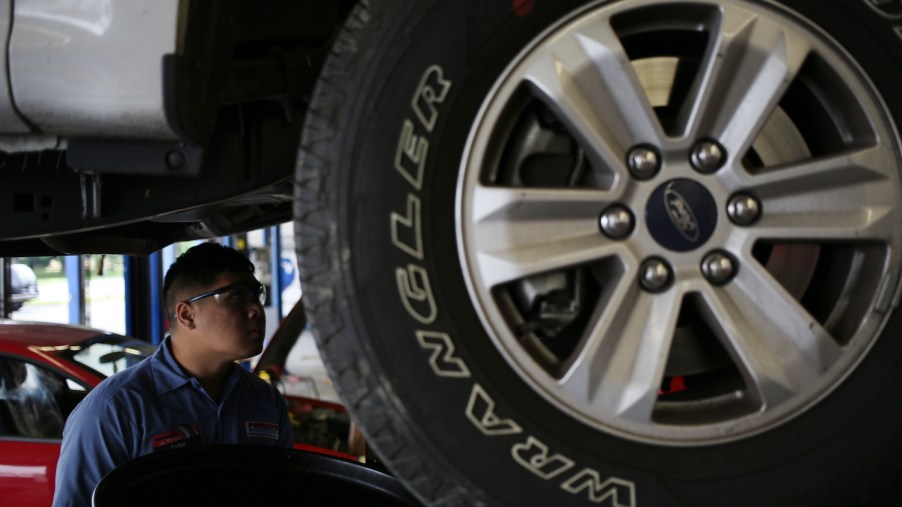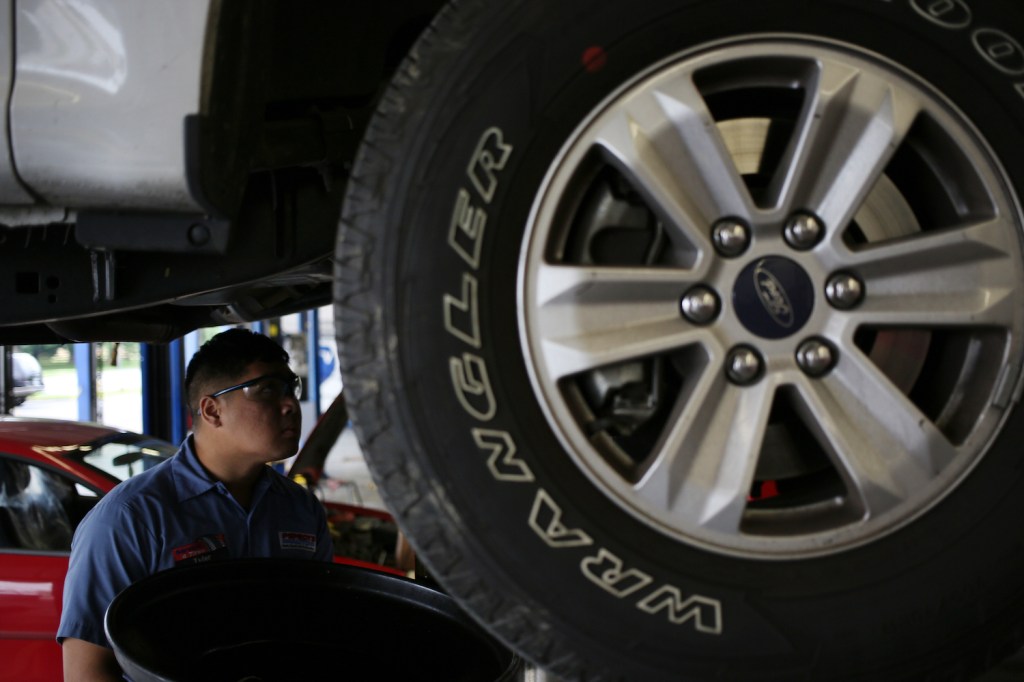
These Common Oil Change Myths Need to Be Laid to Rest
Most people understand that their car’s oil needs to be changed on a fairly regular basis. Unfortunately, not everyone knows the truth about oil changes. Fortunately, we’re here to help. Here’s what you need to know about the most common oil change myths.

Common oil change myth: You have to change your oil every 3,000 miles
This might be the most common of all oil change myths. I’ve heard it, you’ve heard it. Odds are, we’ve all heard it. But do you really have to change your oil every 3,000 miles? Or is that just a misconception? As it turns out, it might be.
In fact, according to Edmunds, the majority of automakers today call for oil changes at either 7,500 or 10,000 miles. Edmunds reports that for some vehicles, that interval can go as high as 15,000 miles. Those numbers are far and above the mythical 3,000 miles. That said, we recommend checking your owner’s manual before waiting that long to have your car’s oil changed.
Common oil change myth: All oil additives are the same
According to Christian Brothers Automotive, this common oil change myth is not true at all. Christian Brothers Automotive explains that oil additives are engineered to help your car’s engine in different ways. While some oil additives are designed to keep the oil performing under heavy use, other oil additives are meant to help older, higher-mileage cars last longer. Basically, Christian Brothers Automotive explains, if an oil additive says it’s formulated for something specific, there’s likely a good reason for it.

Common oil change myth: Synthetic oil causes engine leaks
According to Firestone, this common oil change myth can be traced back to the 1970s, when synthetic oil was first introduced. Unfortunately, Firestone says, this common oil change myth continues to persist. Though, it mostly concerns older cars rather than newer models.
However, the good news is that synthetic oil doesn’t actually cause engine leaks in older cars. While the myth has led some drivers to believe that synthetic motor oil causes your engine to leak because it is slipperier, that’s not actually true. Instead, Firestone explains, “Synthetic motor oil actually provides better protection for your engine at extreme temperatures.”
Common oil change myth: You can’t switch between synthetic and conventional oil
According to Penzoil, this is one of the most persistent oil change myths out there. Fortunately, much like other common oil change myths, it’s not true in the slightest. In reality, Penzoil reports, you can switch back and forth between synthetic and conventional oil basically anytime. You can also choose a synthetic blend oil instead too.
“In fact,” Penzoil explains, “Synthetic blends are simply a mixture of synthetic and conventional oils. It is advisable that you use the same oil for top-ups if needed, thereby giving you the best protection from the oil that you have chosen.
Common oil change myth: You should visit a dealer to have your oil changed
While you might think that having your car’s oil changed at the dealership is the safest option and won’t have a negative impact on your car’s warranty coverage, that’s actually a common oil change myth. Do It Yourself explains, “While the dealer may know more about your specific vehicle than an ordinary shop, you will not void the warranty by taking it elsewhere. As long as you keep records of when you had the oil changed, you will be good to go.”

Regularly scheduled maintenance is the key to keeping your car on the road
There’s no denying that oil changes are important. In fact, according to Consumer Reports, regularly scheduled oil changes can be the key to keeping your car on the road for miles to come. Consumer Reports explains, “Even missing one oil change can contribute to premature engine wear, or cause damage and reduce the chances of your car remaining reliable for long.”



